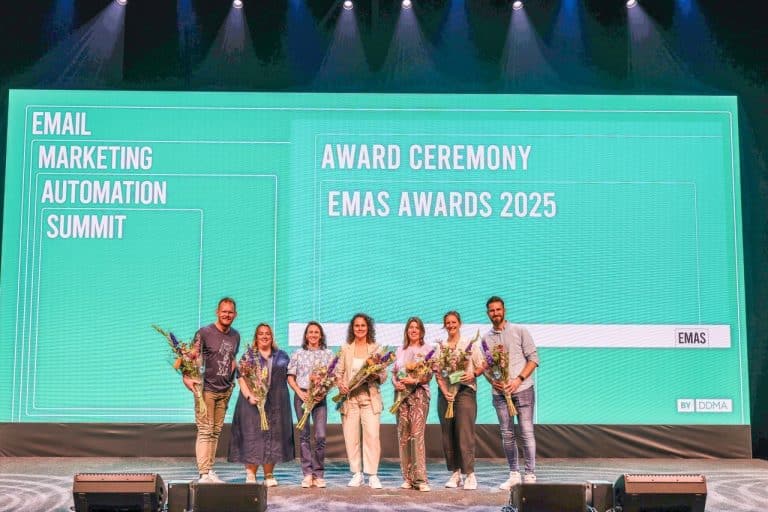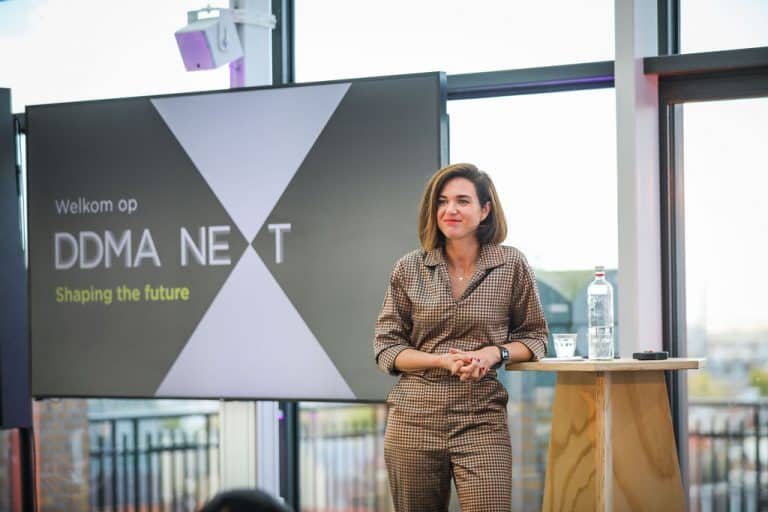Capgemini is sponsor of DDMA NEXT and the DDMA focus theme ‘Marketing team of the future. Click here to read more interesting marketing insights from Capgemini.
Who could ever imagine hundreds (if not thousands) of delivery guys on the streets, racing against time to deliver your groceries as fast as possible? The level of expectations of consumers are rising, and so is the demand for engaging in contextualized content across channels. This means that marketing organizations need to play a different role to keep up with this pace. Organizations must become completely customer-centric; marketing should be embedded in the whole operating model. To meet the golden customer-centric standard, all employees – regardless of role – must have the customer knowledge that a marketing leader has. So, does this mean that everyone must become a CMO to create a future-proof organization?
What we see at companies
As a marketing organization, it is challenging to keep up with expectations and it means that you must rethink your modus operandi. What we see in different organizations is that functional structures have created siloed, unharmonized departments. Today’s marketing teams are often organized on a channel or category-based structure. However, because of the increasing need to adapt to customer needs and serve them with consistent and relevant content, there is a visible shift in marketing operating models. Looking at firms running at the forefront of marketing, we see the ongoing pursuit of centralizing local marketing operations to drive operational efficiency.
Tempted by the typical benefits of centralizing any business function (e.g., economies of scale, greater control), especially B2C CMOs forego the creative power installed within local offices. Moreover, by transforming traditional marketing departments into customer data hubs that continuously act on new insights or value pools, the responsibilities of the marketing department are fundamentally changing. This is as more and more firms are formalizing customer experience into official roles and functions. Hereby, transferring traditional marketing responsibilities throughout the organization, yet progressing on the marketer’s biggest asset: real-time data usage. Today’s CMO (and therefore, the marketing organization) will become more purpose-led, data-driven, human-centered, and collaborative than ever before.
The role of a CMO in the new marketing organization
The role of the CMO has evolved in new directions and expanded beyond traditional brand-building. 90% of CMOs have some level of responsibility for business strategy, its tactical execution, and business-model innovation. With the right digital tools and digitalized processes, the modern CMO can take over as orchestrator of the Connected Marketing ecosystem to drive a truly value-adding customer experience.
Understanding marketing from an ecosystem perspective reduces complexity and supports the CMO in managing in four areas:
- Data-driven – Creation of benefits beyond brand values
- Responsive – Collaboration between departments
- At scale – Services rely on business and IT interplay
- Personalized – Unified and trusted data

The six critical focus areas for a data-driven marketing environment
Keeping up with complex future marketing trends is not enough, CMOs must address the need for restructuring within their organization because of the necessity of data-driven skills, collaboration, and automation. Most firms struggle in transforming into these new-age marketing powerhouses. Therefore, we identified six focus areas critical to a CMO’s preparation for a data-driven marketing environment:
- Create a clear vision for the marketing strategy
- Ensure data-driven capabilities are at the core of the strategy
- Define the roadmap for transformation
- Reimagine the customer journey with real-time engagement
- Implement a customer-data platform
- Utilize customer-listening tools to understand the intent
- Have a clear content-management strategy and solutions
- Use automation tools for delivery
- Ensure talent is equipped with a baseline of data and creative skills while allowing for specialists
- Recruit or upskill marketing talent
- Focus on developing an analytical mindset
- Upskill on digital and performance marketing
- Develop a learning curve
- Establish a center of excellence
- Accelerate collaboration across the marketing ecosystem
- Collaborate with key functions (IT, sales, finance) and external partners
- Implement a framework-driven data collection process
- Create a data collection framework
- Consider data from emerging digital touchpoints
- Unify internal data silos
- Integrate long-term brand building and short-term marketing engagements
- Build-in brand building with short-term marketing initiatives
- Allocate separate budgets for long- and short-term marketing engagements
What are four ways to help your organization in building a future-proof marketing organization?
As traditional organizational structures within the marketing ecosystem must be reinvented to keep up with managing the content explosion, fast customer reactions, and technological advancements. CMOS need to train and structure their teams differently, collaborate with external partners and find the right balance between consistency and independence. The organization needs to be structured such that it supports the marketing ambitions. But how do you do that?
“Unifying your marketing organization is the first step in building future marketing ecosystem”

As CMO, it is key to adopt a new end-to-end marketing organizational model. And as CMO, you can take the first steps to build that organization, where your customers are at the center of everything. This means that all people in your organization should think, act and feel from the customer’s perspective. Let’s not just say; that everybody is a CMO, but everybody should have a customer-centric view of a CMO.
Ook interessant

Winnaars DDMA EMAS Awards 2025 bekendgemaakt

Verslag van het DDMA Decision Makers Breakfast – 19 juni 2025 – Amsterdam



